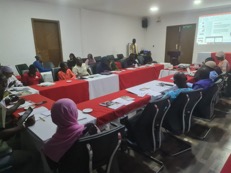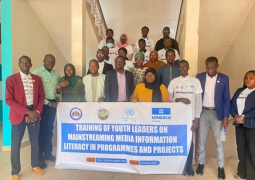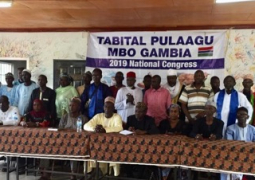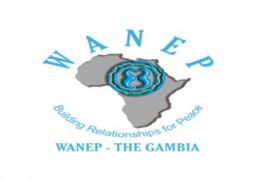
The currently developed MHPSS Manual is part of FRSD's project intervention in providing institutional support for Mental Health and Psychosocial Support Services for migrant returnees and The Gambia in general.
The Fund for Regional Stabilization and Development in fragile regions within the ECOWAS Member States (Commonly known as FRSD) is a flexibly designed regional funding mechanism to be used by ECOWAS to promote stability through sustainable development measures in its Member States.
Abdoulie Singhateh, Youth Empowerment and Migration Advisor at ECOWAS FRSD described the validation as a historic moment in the areas of mental health and psychosocial support in The Gambia.
He thanked the School of Nursing for their intervention in ensuring that the development of the manual was realised.
He revealed that the program will be in two levels (Certificate and Diploma).
Fatoumatta Bah, Head of School of Nursing and Midwifery, Gambia College said the training course targets mental health workers, immigration officers, police officers and people who deal with migrants and returnees.
“Irregular migration has become an issue in The Gambia. We have seen a lot of young people using the sea to travel to Europe,” she pointed out, adding that the psychosocial needs of those people are mostly neglected when they return home.
She observed that sometimes due to the traumatic nature of the journey, they face a lot of psychosocial and mental issues.
According to her, the curriculum was developed with the support of IOM, WHO and Ministry of Health, adding that Gambia College School of Nursing opted to run the training programme.
Silvia Lorenzi, technical advisor and consultant stated that the course will help train more people and stem the development of mental health illnesses.
“People that are in psychiatric hospitals in The Gambia are mentally sick but we all have mental health. This means that we are all dealing with stress, difficult emotions and difficult thoughts. We all have days in which we are functioning and productive and days in which we are not,”she stated.
According to her, the course will prepare students to be aware of others’ mental health and their own mental health but be ready to support vulnerable individuals including migrants, survivors of sexual and gender-based violence and other vulnerable people who are at risk of developing psychological issues.
Read Other Articles In National News
SCAPC Inaugurate Cashew Processing Factory in Tanji
Dec 18, 2024, 11:31 AM




